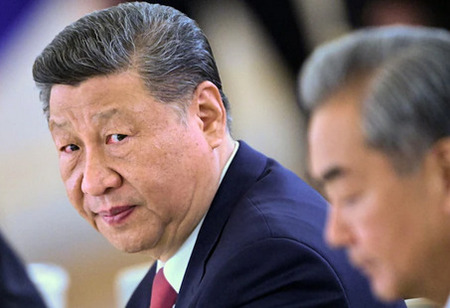
Huawei Unveils AI Cluster Breakthrough for China's Tech

 Huawei Technologies has released new gear that it says can provide top-tier processing power without using Nvidia's cutting-edge chips; this could help China overcome its artificial intelligence supply shortage.
Huawei Technologies has released new gear that it says can provide top-tier processing power without using Nvidia's cutting-edge chips; this could help China overcome its artificial intelligence supply shortage.
The telecom behemoth from Shenzhen claimed to have created the "most powerful" supernode computing cluster in the world using chips made in the country, supporting China's drive for AI independence.
“Huawei is seeking to build a ‘supernode + cluster’ computing solution using chip manufacturing processes available in China to meet the growing compute needs,” said Xu Zhijun, Huawei’s deputy chairman and rotating chairman, at the company’s annual Connect Conference in Shanghai
Also Read: Indonesia Summons TikTok, Meta to Discuss on Disinformation
Xu also shared Huawei’s roadmap for its Ascend AI chips over the next three years, including the Ascend 950PR slated for release in the first quarter of 2026. These plans run alongside AI chip developments from Nvidia and AMD.
Also Read: Adaptability Lessons: Why Southeast Asia's Heat Can't Beat Mars Wrigley
Xu’s announcement comes amid Beijing’s push for Chinese tech giants to stop buying Nvidia’s China-tailored chips, which were designed under US export restrictions. Nvidia CEO Jensen Huang commented on the new stance, saying he was “disappointed with what I see, but they have larger agendas to work out between China and the US, and I’m patient about it".
Huawei, which is sanctioned by the US, is taking a leading role in enabling China’s AI ambitions without using American technology.
A supernode is a high-performance cluster that combines multiple AI accelerators through ultra-fast interconnects.
Huawei unveiled the Atlas 950 SuperPoD and Atlas 960 SuperPoD, capable of supporting up to 8,192 and 15,488 in-house Ascend processors, respectively. The company claims these systems lead the world in processor count, total computing power, memory capacity, and interconnect bandwidth
Also Read: Tadashi Yanai: Making Uniqlo the World's Go-to Casual Wear Brand
“Computing power was the key to artificial intelligence in the past, and it will remain so in the future – especially for China’s AI development,” Xu said

